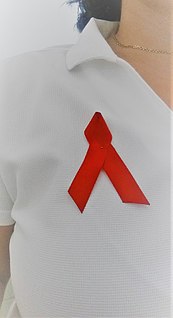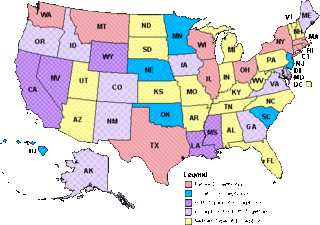Emotions are biological states associated with all of the nerve systems brought on by neurophysiological changes variously associated with thoughts, feelings, behavioural responses, and a degree of pleasure or displeasure. There is currently no scientific consensus on a definition. Emotions are often intertwined with mood, temperament, personality, disposition, creativity, and motivation.

Social norms are regarded as collective representations of acceptable group conduct as well as individual perceptions of particular group conduct. They can be viewed as cultural products which represent individuals' basic knowledge of what others do and think that they should do. From a sociological perspective, social norms are informal understandings that govern the behavior of members of a society. Social psychology recognizes smaller group units may also endorse norms separately or in addition to cultural or societal expectations.

In social science and politics, power is the capacity of an individual to influence the actions, beliefs, or conduct (behaviour) of others. The term authority is often used for power that is perceived as legitimate by the social structure, not to be confused with authoritarianism. Power can be seen as evil or unjust; however, power can also be seen as good and as something inherited or given for exercising humanistic objectives that will help, move, and empower others as well. In general, it is derived by the factors of interdependence between two entities and the environment. The use of power need not involve force or the threat of force (coercion). An example of using power without oppression is the concept "soft power," as compared to hard power. Much of the recent sociological debate about power revolves around the issue of its means to enable – in other words, power as a means to make social actions possible as much as it may constrain or prevent them.

A social movement is a loosely organized effort by a large group of people to achieve a particular goal, typically a social or political one. This may be to carry out, resist or undo a social change. It is a type of group action and may involve individuals, organizations or both. Definitions of the term are slightly varied. Social movements have been described as "organizational structures and strategies that may empower oppressed populations to mount effective challenges and resist the more powerful and advantaged elites". They represent a method of social change from the bottom within nations.
The expression collective behavior was first used by Franklin Henry Giddings (1908) and employed later by Robert E. Park and Burgess (1921), Herbert Blumer (1939), Ralph H. Turner and Lewis Killian (1957), and Neil Smelser (1962) to refer to social processes and events which do not reflect existing social structure, but which emerge in a "spontaneous" way. Use of the term has been expanded to include reference to cells, social animals like birds and fish, and insects including ants. Collective behavior takes many forms but generally violates societal norms. Collective behavior can be tremendously destructive, as with riots or mob violence, silly, as with fads, or anywhere in between. Collective behavior is always driven by group dynamics, encouraging people to engage in acts they might consider unthinkable under typical social circumstances.

Mothers Against Drunk Driving (MADD) is a nonprofit organization in the United States, Canada and Brazil that seeks to stop drunk driving, support those affected by drunk driving, prevent underage drinking, and strive for stricter impaired driving policy, whether that impairment is caused by alcohol or any other drug. The Irving, Texas–based organization was founded on September 5, 1980, in California by Candace Lightner after her 13-year-old daughter, Cari, was killed by a drunk driver. There is at least one MADD office in every state of the United States and at least one in each province of Canada. These offices offer victim services and many resources involving alcohol safety. MADD has claimed that drunk driving has been reduced by half since its founding.

Social exchange theory is a sociological and psychological theory that studies the social behavior in the interaction of two parties that implement a cost-benefit analysis to determine risks and benefits. The theory also involves economic relationships—the cost-benefit analysis occurs when each party has goods that the other parties value. Social exchange theory suggests that these calculations occur in romantic relationships, friendships, professional relationships, and ephemeral relationships as simple as exchanging words with a customer at the cash register. Social exchange theory says that if the costs of the relationship are higher than the rewards, such as if a lot of effort or money were put into a relationship and not reciprocated, then the relationship may be terminated or abandoned.
In modern English, a cult is a social group that is defined by its unusual religious, spiritual, or philosophical beliefs, or by its common interest in a particular personality, object, or goal. This sense of the term is controversial, having divergent definitions both in popular culture and academia, and has also been an ongoing source of contention among scholars across several fields of study. The word "cult" is usually considered pejorative.
The Carrollton bus collision occurred on May 14, 1988 on Interstate 71 in unincorporated Carroll County, Kentucky. The collision involved a former school bus in use by a church youth group and a pickup truck driven by an alcohol-impaired driver. The head-on collision was the deadliest incident involving drunk driving and the third-deadliest bus crash in United States history. Of the 67 people on the bus, there were 27 fatalities in the accident, the same number as the 1958 Prestonsburg, Kentucky bus disaster and behind the 1976 Yuba City bus disaster (29) and 1963 Chualar bus crashes (32).

The red ribbon, as an awareness ribbon, is used as the symbol for the solidarity of people living with HIV/AIDS, and for the awareness and prevention of drug abuse and drunk driving.
Robert William Balch is a sociologist from the University of Montana. Balch is best known for his studies of Heaven's Gate, the Aryan Nations, and the Love Family.
Neo-prohibitionism is a current movement to attempt to stop consumption of alcohol in society through legislation and policies which further restrict the sale, possession, and marketing of alcohol in order to reduce average per capita consumption and change social norms to reduce its acceptability.

A sociological theory is a supposition that intends to consider, analyze, and/or explain objects of social reality from a sociological perspective, drawing connections between individual concepts in order to organize and substantiate sociological knowledge. Hence, such knowledge is composed of complex theoretical frameworks and methodology.

Alcohol consumption by youth in the United States of America is an umbrella term for alcohol consumption by individuals under the age of 18 in the country.

In sociology, social psychology is an area of sociology that focuses on social action and on the interrelation of personality, values, and mind with social structure and culture. Some of the major topics in this field include social status, structural power, sociocultural change, social inequality and prejudice, leadership and intra-group behavior, social exchange, group conflict, impression formation and management, conversation structures, socialization, social constructionism, social norms and deviance, identity and roles, and emotional labor.
A moral entrepreneur is an individual, group, or formal organization that seeks to influence a group to adopt or maintain a norm; altering the boundaries of altruism, deviance, duty or compassion.
A diversion program, also known as a pretrial diversion program or pretrial intervention program, in the criminal justice system is a form of pretrial sentencing in which a criminal offender joins a rehabilitation program to help remedy the behavior leading to the original arrest, allow the offender to avoid conviction and, in some jurisdictions, avoid a criminal record. The programs are often run by a police department, court, a district attorney's office, or outside agency. Problem-solving courts typically include a diversion component as part of their program. The purposes of diversion are generally thought to include relief to the courts, police department and probation office, better outcomes compared to direct involvement of the court system, and an opportunity for the offender to avoid prosecution by completing various requirements for the program. These requirements may include:

Culture is an umbrella term which encompasses the social behavior and norms found in human societies, as well as the knowledge, beliefs, arts, laws, customs, capabilities, and habits of the individuals in these groups.
John David McCarthy is an American sociologist. He earned his Ph.D degree in Sociology at University of Oregon in 1968. He is currently a Professor of Sociology at Pennsylvania State University.
Blackout Wednesday refers to binge drinking on the night before the Thanksgiving holiday in the United States. Very few people work on Thanksgiving, and most university students are home with their families for the Thanksgiving holiday, which means that high school friends have an opportunity to catch up at the local tavern as they converge on their hometown. "Blacking out" is a slang term for unconsciousness and/or memory loss due to excessive alcohol intoxication. In some suburbs of Chicago, Blackout Wednesday can be a more popular party night than even New Year's Eve or Saint Patrick's Day. In some cities, it is the worst drunk driving night of the year. Police departments increase patrols checking for drunk driving in many jurisdictions including in Indiana and Minnesota. MADD reports that the Thanksgiving holiday produces more people killed in drunk driving crashes than the Christmas holiday.







